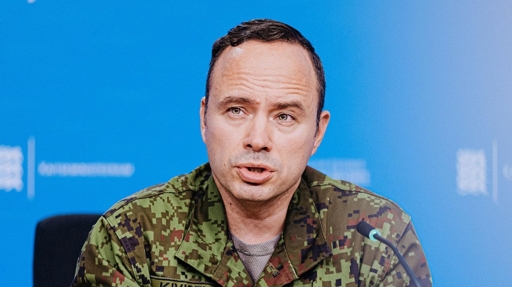Estonian intelligence has analysed the advance of the Russian army in Ukraine and calculated that 330 sq km of territory has been captured in August alone.
Source: ERR, citing Colonel Ants Kiviselg, Head of the Intelligence Centre of the Estonian Defence Forces, on Friday 1 August, as reported by European Pravda
Details: Kiviselg stated that in August, the Russian army managed to seize 330 sq km of Ukrainian territory. He noted that the average number of attacks per day in August was around 158. Last week it was 163.
“During August, the armed forces of the Russian Federation managed to capture another 330 sq km, which is comparable with the previous summer months. The Armed Forces of Ukraine were able to halt the advance of Russian forces near Dobropillia, which took place last week,” he said.
 *Dobropillia and Pokrovsk on the map.*Photo: DeepState
*Dobropillia and Pokrovsk on the map.*Photo: DeepState
Kiviselg said the focus of the Russian offensive remains Donetsk Oblast, towards Pokrovsk.
He stressed that the city of Pokrovsk continues to hold important operational significance for the Ukrainians, since the battles for Pokrovsk and the surrounding settlements tie down a large number of Russian troops, allowing the Russians to be dispersed in the region.
“Thus, the Armed Forces of Ukraine are limiting Russia’s ability to intensify attacks both to the north, where Sloviansk and Kramatorsk are, and to the west. In addition, the defensive fortifications around Pokrovsk prevent Russian troops from advancing deeper into Dnipropetrovsk Oblast,” he said.
Kiviselg noted that during the peace talks there was a noticeable decrease in missile strikes by the Russian navy and long-range aircraft, as well as a decline in the number of long-range drone strikes, but that after the talks, the Russians ramped up their attacks.
 Pokrovsk on the map. Photo: DeepState
Pokrovsk on the map. Photo: DeepState
Background:
Recently, Estonia stated that the number of civilian deaths in Ukraine had risen in June as a result of large-scale Russian attacks.Nineteen people were injured in a Russian missile strike on the US-owned Flex plant in Mukachevo, Zakarpattia Oblast, on 21 August.Hungarian Foreign Minister Péter Szijjártó responded to the Russian strike on Ukraine’s oblasts, including Zakarpattia, without mentioning it directly, and stressed the need to “reach a peace agreement”.Hungarian President Tamás Sulyok expressed condolences to the victims of the Russian attack on the Mukachevo plant, but later removed the word “Russian” from his post.Péter Magyar, the leader of Hungarian opposition party Tisza, criticised Sulyok for doing this.
Support Ukrainska Pravda on Patreon!
From Ukrainska Pravda via this RSS feed


